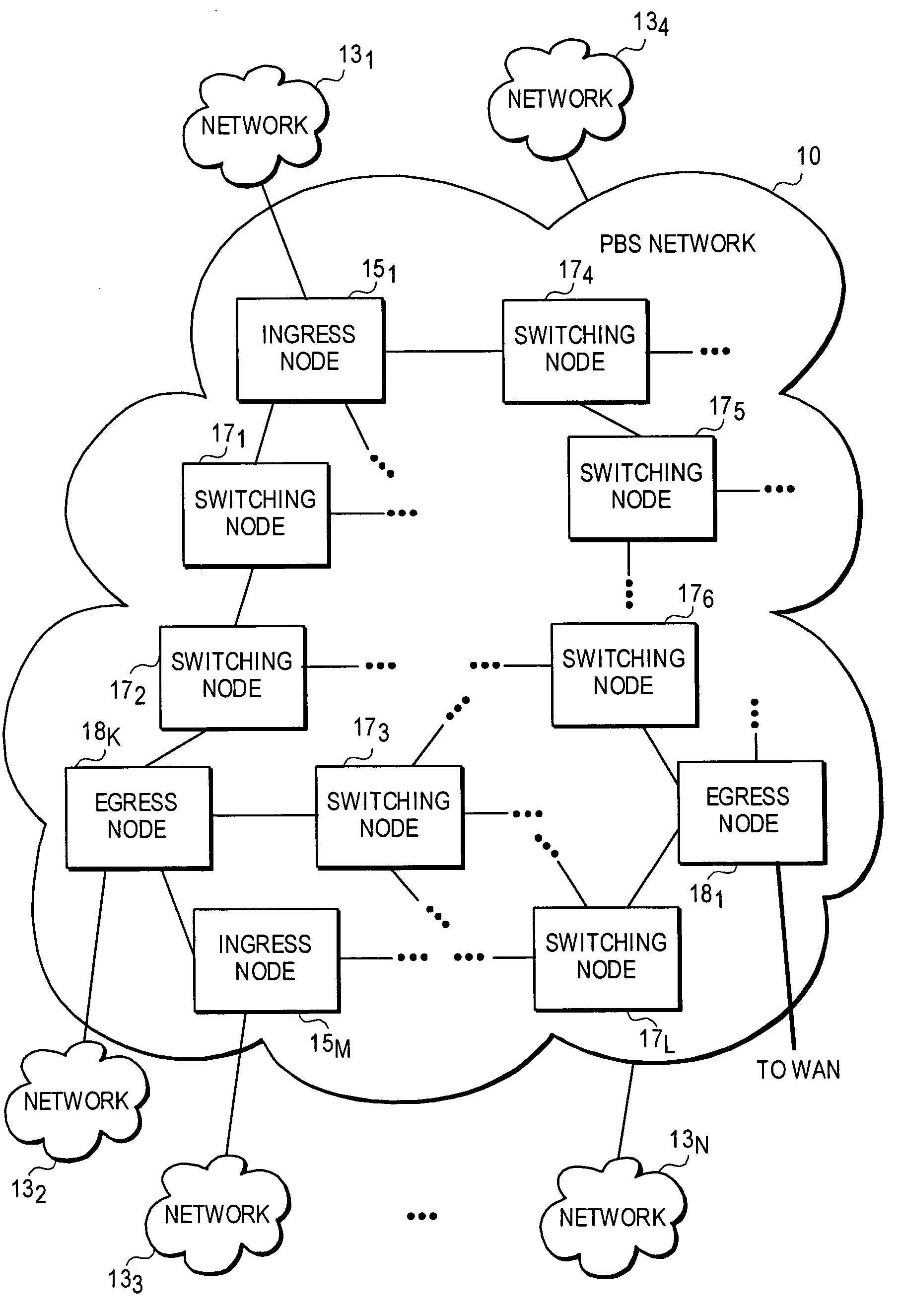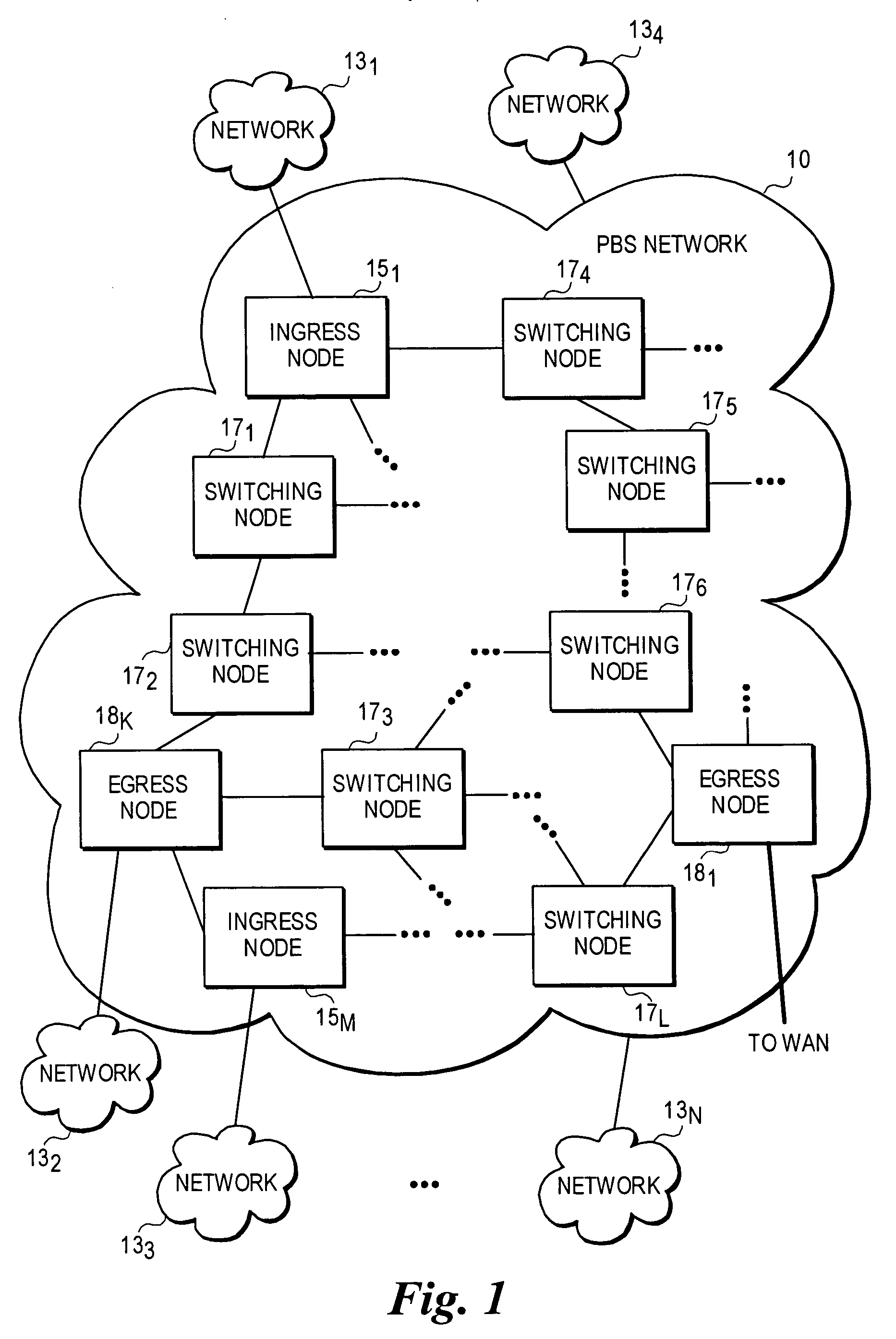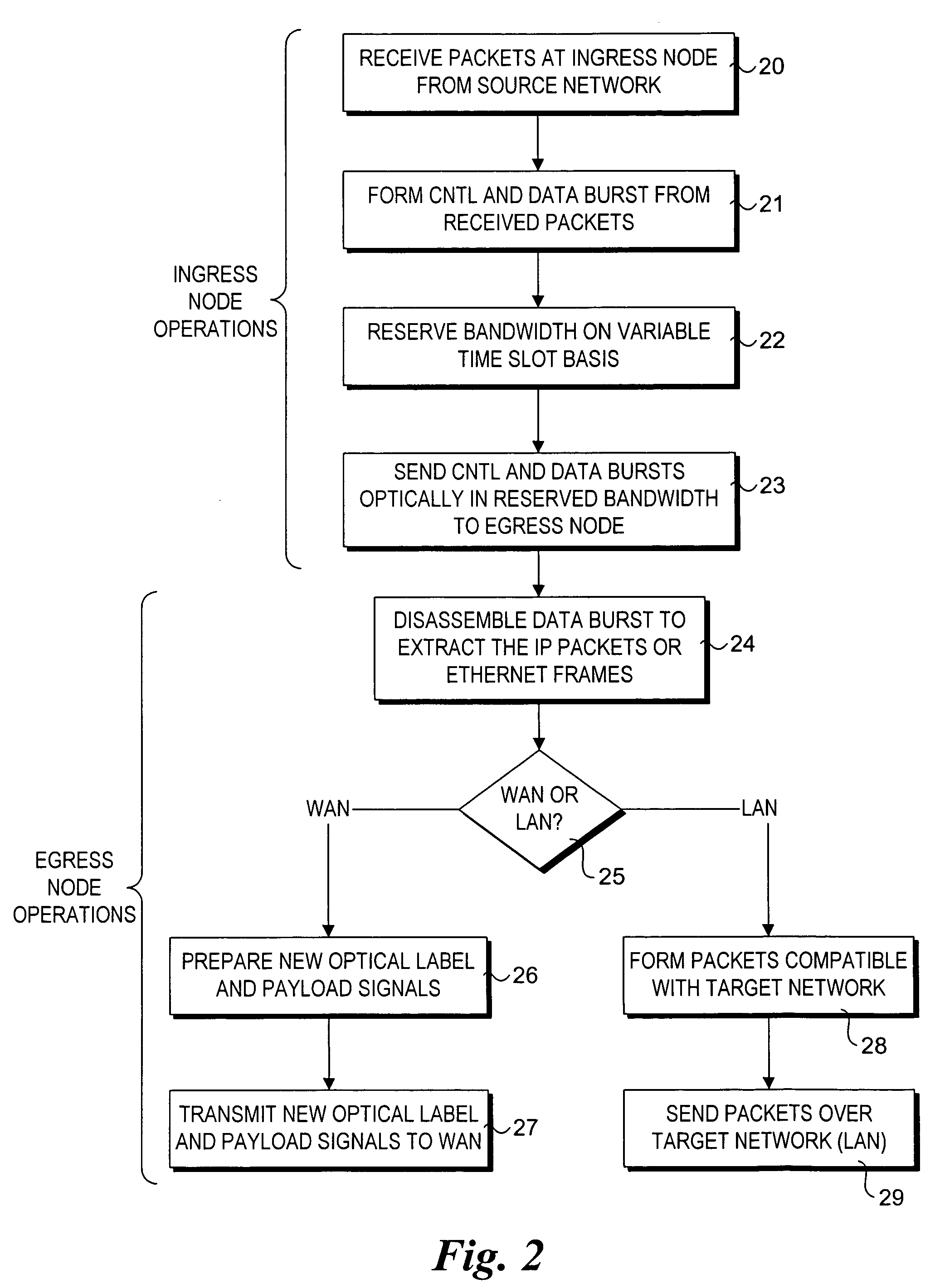Dynamic route discovery for optical switched networks
a dynamic route discovery and optical switch technology, applied in the field of optical switches, can solve the problems of slow operation, traffic bottleneck in the optical switch network, and the current optical switch technology cannot efficiently support “bursty” traffi
- Summary
- Abstract
- Description
- Claims
- Application Information
AI Technical Summary
Benefits of technology
Problems solved by technology
Method used
Image
Examples
Embodiment Construction
[0030]In the following detailed descriptions, embodiments of the invention are disclosed with reference to their use in a photonic burst-switched (PBS) network. A PBS network is a type of optical switched network, typically comprising a high-speed hop and span-constrained network, such as an enterprise network. The term “photonic burst” is used herein to refer to statistically-multiplexed packets (e.g., Internet protocol (IP) packets or Ethernet frames) having similar routing requirements. Although conceptually similar to backbone-based OBS networks, the design, operation, and performance requirements of these high-speed hop and span-constrained networks may be different. However, it will be understood that the teaching and principles disclosed herein may be applicable to other types of optical switched networks as well.
[0031]FIG. 1 illustrates an exemplary photonic burst-switched (PBS) network 10 in which embodiments of the invention described herein may be implemented. This embodi...
PUM
 Login to View More
Login to View More Abstract
Description
Claims
Application Information
 Login to View More
Login to View More - R&D
- Intellectual Property
- Life Sciences
- Materials
- Tech Scout
- Unparalleled Data Quality
- Higher Quality Content
- 60% Fewer Hallucinations
Browse by: Latest US Patents, China's latest patents, Technical Efficacy Thesaurus, Application Domain, Technology Topic, Popular Technical Reports.
© 2025 PatSnap. All rights reserved.Legal|Privacy policy|Modern Slavery Act Transparency Statement|Sitemap|About US| Contact US: help@patsnap.com



